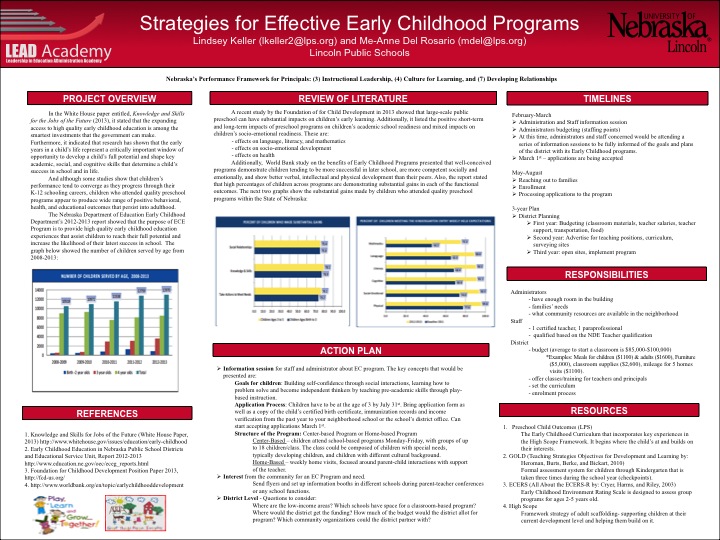Lindsey Keller and Me-Anne Del Rosario
lkeller2@lps.org
mdel@lps.org
In the White House paper entitled, Knowledge and Skills for the Jobs of the Future (2013), it stated that the expanding access to high quality early childhood education is among the smartest investments that the government can make. Furthermore, it indicated that research has shown that the early years in a child’s life represent a critically important window of opportunity to develop a child’s full potential and shape key academic, social, and cognitive skills that determine a child’s success in school and in life.
And although some studies show that children’s performance tend to converge as they progress through their K-12 schooling careers, children who attended quality preschool programs appear to produce wide range of positive behavioral, health, and educational outcomes that persist into adulthood.
The Nebraska Department of Education Early Childhood Department’s 2012-2013 report showed that the purpose of ECE Program is to provide high quality early childhood education experiences that assist children to reach their full potential and increase the likelihood of their latest success in school. The graph below showed the number of children served by age from 2008-2013:
